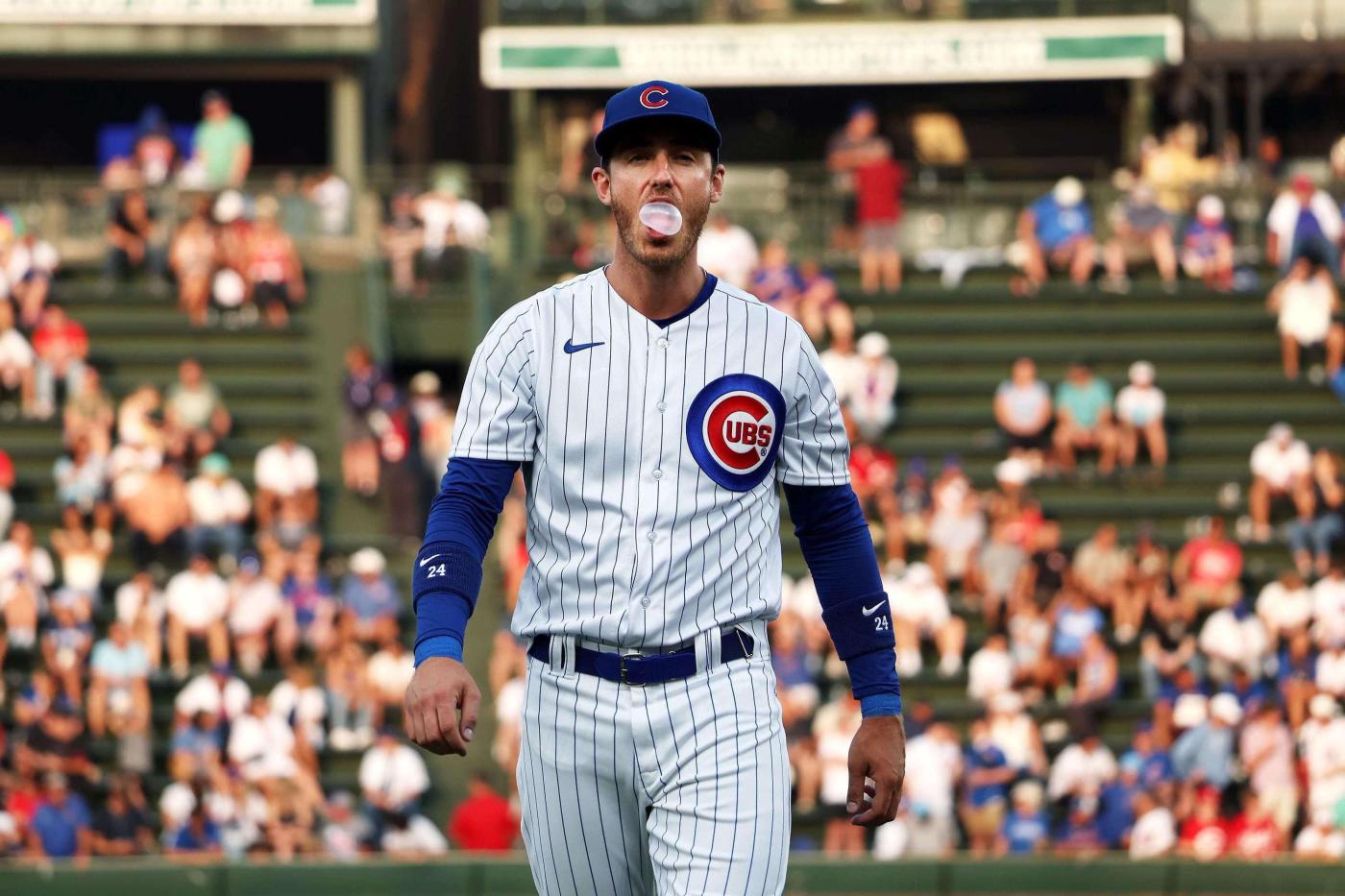
Column: Will the Chicago Cubs have to do more with less under Craig Counsell? Takeaways from a lukewarm hot stove league.
Hot stove takeaways for a lukewarm holiday season.
When Craig Counsell talked about “solving for wins” at the MLB winter meetings in Nashville, Tenn., I thought I had misheard him.
Then I realized the new Chicago Cubs manager was simply speaking a different language, like Theo Epstein when the former Cubs president arrived on the scene in 2011 and began using terms such as “parallel tracks” and teams “evolving” like “Galápagos Islands — that type of thing.”
“If you can get one player that adds up to a lot of wins, that’s helpful,” Counsell said. “There’s no question about it. But you’re solving for wins and that’s a puzzle you’re putting together. That’s the hard part about roster building, and it’s the challenge that every team faces in an offseason with player movement.”
That puzzle-solving ability is what helped make Counsell one of the game’s most respected managers in Milwaukee — and now the richest in Chicago. But if the Cubs don’t bring in a star starter or help at first, third and center, it simply would put more focus on Counsell’s “solving” ability come opening day.
Doing more with less was kind of his thing in Milwaukee. Would he have to follow the same script in Chicago?
Cubs fans don’t want to find out.
The Cubs had yet to make a significant signing or deal as of Saturday, despite the pursuit of Shohei Ohtani and interest in Tyler Glasnow, both of whom will be employed by the Los Angeles Dodgers.
There’s plenty of time for President Jed Hoyer to make moves, and free agents Cody Bellinger, Matt Chapman, Blake Snell and Jordan Montgomery remain available.
But after so much talk about Ohtani, fans expect Hoyer to make at least a couple of “name” signings as a consolation prize, and their impatience was showing on social media.
Since MLB has no deadline for signings, free agency could drag on into spring training for some players, particularly those represented by agent Scott Boras.
Bellinger, Chapman, Snell and Montgomery all happen to be in that exclusive club.
Hoyer said at the winter meetings that players “always want to have a job before Christmas,” which he called a “natural” deadline. But that’s one week away, and the movement has been slow, so don’t expect a mad rush of superstars like the week before the owners lockout.
Hoyer dreamed of a winter in which a specific free-agency signing period would be in place to help move along the process. The artificial deadline before the owners lockout in December 2021 spurred much movement.
“I’m sure the union would balk at it, but I know everyone would love that if there was a date beyond you couldn’t sign a major-league deal or couldn’t sign a multiyear deal,” Hoyer said. “I’m sure that would spur activity and would give us our lives back.”
Hoyer laughed, knowing the truth: Being in charge of the Cubs means never getting your life back.
After a lifetime of listening to baseball people speak — and sometimes misspeak — I’ve learned quite a few of them seem reluctant to admit when they’ve said something stupid.
But it happens, even to the smartest men in the room.
Former Chicago Cubs manager David Ross ran into such a situation in September when the Cubs lost to the Pittsburgh Pirates to drop a crucial series in their stretch run for a wild-card spot.
“That’s not a good team that just took two out of three from us,” Ross said afterward. “Or not our caliber of team, I believe.”
Ross was correct in his analysis, but it was also something better off left unsaid.
The remark was all over social media and quickly found its way to the Pirates clubhouse, where outfielder Brian Reynolds told the Pittsburgh Post-Gazette “If we’re such a bad team, maybe he should have managed his team a little better and beat us.”
Ross went into apology mode the next day, saying he texted Pirates manager Derek Shelton to let him know he was just “frustrated after a game.”
Ross told reporters he respected the Pirates and “thought I corrected myself within the context of talking to you guys,” adding: “Part of this job, you’re not always going to be perfect in these (media sessions) and sometimes after a game postgame, you’re going to say things that probably don’t come out the right way and what you’re really truly feeling and the respect you have for everybody in this league.”
Uh, sure.
The news story had an appropriately short shelf life, but you know what happened next: The Cubs’ late-season collapse continued, they missed out on the postseason, Ross was fired and Counsell was hired on a record five-year, $40 million deal.
That shocking chain of events led to Pat Murphy, a baseball lifer and longtime bench coach under Counsell in Milwaukee, to get promoted to Brewers manager. Murphy, 65, has the difficult task of going from wing man to leading man, one seat over in the same dugout, and trying to keep the status quo in the National League Central.
It was a small victory for those in baseball who wait their turn in a sport in which hiring managers with no experience has become commonplace.
But if didn’t take long for Murphy to make his first verbal miscue. While praising the Brewers re-signing veteran lefty Wade Miley during the winter meetings, Murphy told reporters: “A lot of these guys aren’t that smart, and he’s one of those guys getting smarter.”
Again, it might have been true but probably was better off left unsaid. If he had said it in an office with a few beat writers, Murphy could’ve caught his mistake and asked them not to use it in their reporting. But there was no safety net here, and the comment would soon be dispersed on the internet.
When asked a few minutes later what he meant by “a lot” of players not being “that smart,” Murphy admitted he had stepped into a pile of his own making.
“I was just throwing stuff out there,” he said. “It was probably a stupid comment, to be honest with you.”
The admission of guilt was refreshing to hear. Everyone says something dumb sometimes and wishes they could have it back. Murphy didn’t make any excuses and took responsibility for what he said.
Here’s hoping many others follow his lead in 2024.
()


